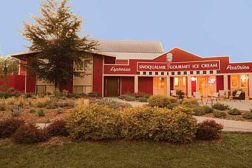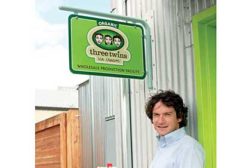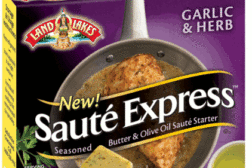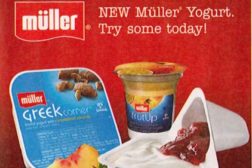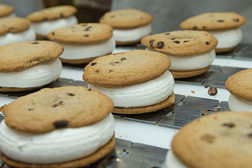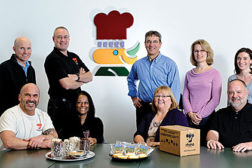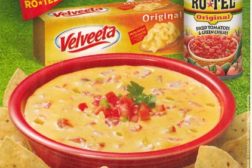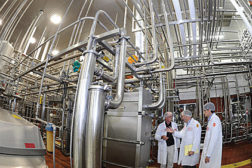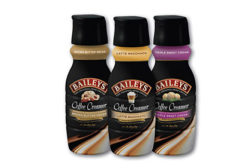Articles by James Carper
‘We make perfect ice cream,’ says the owner of Snoqualmie Ice Cream in Washington state. Organic milk and cream, innovative flavor combinations and homegrown herbs and fruits contribute to the products’ popularity.
Read More
Three Twins Ice Cream aims for the top
Neal Gottlieb is taking aim at the top national brands of super-premium ice creams. He calls his organic products ‘inconceivably delicious.
March 9, 2013
Innovations
New dairy products are re-shaping grocers' dairy aisles
New dairy products from Kraft and Land O'Lakes are more like ingredients than actual foods. So where do they belong?
February 28, 2013
Free-standing inserts
Muller Quaker features its new yogurts in this week's FSIs
The dairy partnership sells conventional and Greek yogurts.
February 20, 2013
Rhino Foods is rolling in cookie dough
Rhino Foods measures everything it does. Employees work to a goal and are rewarded when they meet the targets. Management’s reward is a smooth-running organization that fulfills customers’ needs.
February 15, 2013
Rhino Foods: Ice cream's trendsetter
Rhino Foods made a name for itself by developing cookie dough for Ben & Jerry’s. But that’s just part of what makes this Vermont dairy processor and baker noteworthy. The forward-thinking company is a trendsetter in employee relations, too.
February 14, 2013
New uses for familiar dairy products, cheese and butter
Processors create new usage occasions for cheese and butter.
February 12, 2013
Free-standing inserts
Party planning and a little 'monkey' business from Kraft in this week's FSIs
Dairy marketers gear up for the Super Bowl and promote a clean label in this week's free-standing inserts.
January 23, 2013
A look inside HP Hood's Sacramento plant
HP Hood fills 600 bottles a minute on its new aseptic line in its Sacramento, Calif., plant. The company processes dairy and nondairy beverages in aseptic and extended shelf life packages.
January 18, 2013
While many processors specialize, HP Hood does it all
While many processors specialize, HP Hood does it all: milk, ice cream, cheese, yogurt, other cultured foods and nondairy beverages.
January 15, 2013
Stay ahead of the curve. Unlock a dose of cutting-edge insights.
Receive our premium content directly to your inbox.
SIGN-UP TODAYCopyright ©2024. All Rights Reserved BNP Media.
Design, CMS, Hosting & Web Development :: ePublishing
